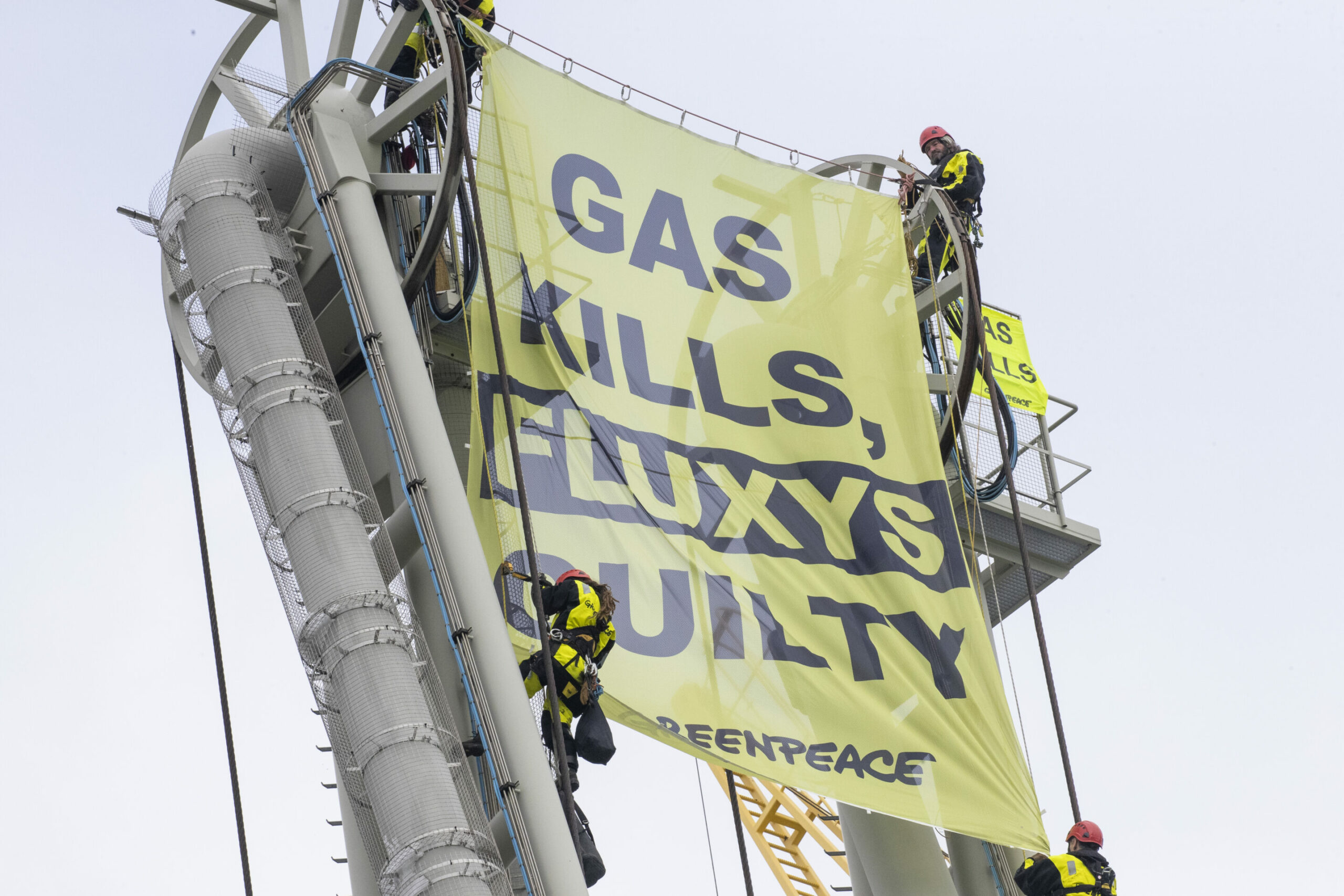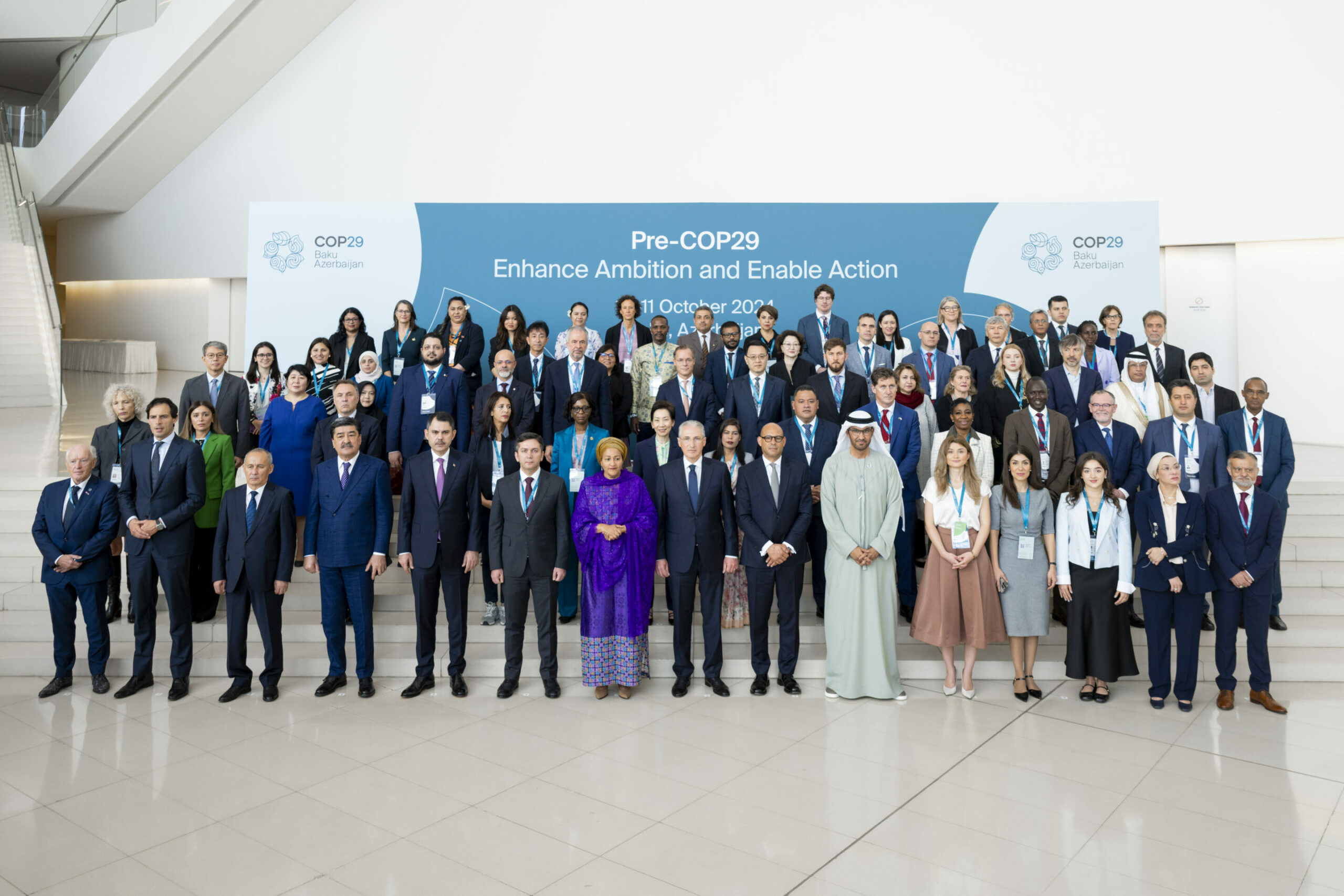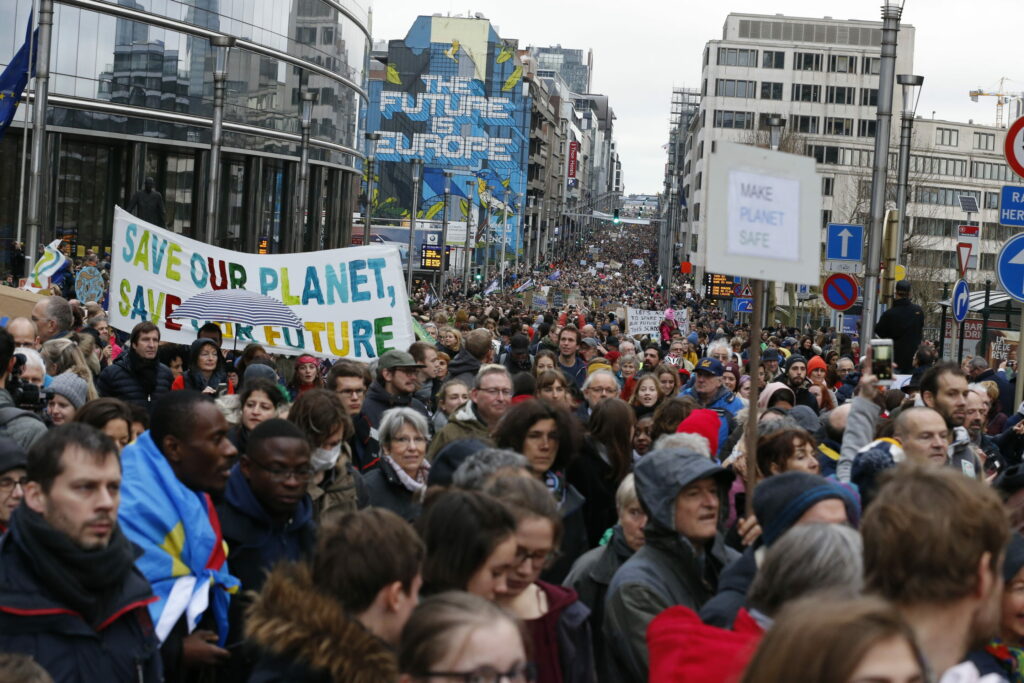Belgium brought 17 fossil fuel lobbyists to COP29, who not only attended but also influenced talks at the United Nations' global climate conference.
At least 1,773 fossil fuel lobbyists were granted access to the COP29 climate summit in Baku, Azerbaijan, an analysis from the Kick Big Polluters Out (KBPO) coalition showed last week. A continued, outsized "polluter presence" remains at the world's most crucial climate talks.
Further analysis published on Monday showed how, in total, EU governments brought 113 fossil fuel lobbyists to Baku, who attended as part of official delegations of national governments of EU Member States.
"This is a long-standing problem. Since COP's creation, the fossil fuel industry has been present," Pascoe Sabido, a researcher and campaigner at Corporate Europe Observatory (CEO), told The Brussels Times. The Brussels-based CEO is one of the organisations which worked on the investigation.
"However, since COP21 in Paris in 2015, we've seen a ramping up of the presence and involvement of the fossil fuel industry. Those same companies that have been causing climate change and whose business models depend on the continuation of climate change are here telling us what to do about it."
Undermining credibility
Belgium's delegation included 17 fossil fuel lobbyists. Six people from gas company Fluxys, including CEO Pascal de Buck, attended. The company is also a shareholder in the Trans Adriatic Pipeline, the final section of the Southern Gas Corridor (SGC), originating in Azerbaijan.
Other Belgian lobbyists linked to the fossil fuel industry represented the dredging and construction company Jan De Nul Group, as well as North Sea Port and Port of Antwerp-Bruges, both large sources of CO2 emissions.
Greece and Italy had the largest fossil fuel delegations among EU Member States, bringing 24 and 22 lobbyists respectively, mostly from gas companies.

A Greenpeace protest at the liquid gas terminal of Fluxys, in the Zeebrugge harbour. Credit: Belga/ Nicolas Maeterlinck
Sabido argued there is a sense among climate activists and experts that those who are trying to burn down the table shouldn't have a seat at it. "You wouldn't ask Philip Morris [American multinational tobacco company] how to give up cigarettes," he said.
For example, Philip Morris is not allowed to come to World Health Organisation (WHO) summits, as Article 5.3 prohibits this. "This recognises the conflict of interests and protects public health officials and decision-making from these industries. We need the same for fossil fuel companies at COP," Sabido continued, while also stressing the conflict of interest hugely undermines the credibility of the process.
Moreover, their presence at the climate conference legitimises their role. "We're not going to change course if we carry on having the same companies that caused it steering the solutions." According to Sabido, tackling this trend starts at the national level. "These countries are already in bed with the fossil fuel industry at the national level. We need to start with our own governments."
Questionable host
Critics have argued that it is not only the presence of fossil fuel lobbyists that brings into question COP's integrity.
"The fact that, for the third year in a row, the conference is taking place in a petrol state is concerning," said Sabido. Many argued that EU Member States from the outset considered COP29 to be a 'gas COP', focusing on securing gas and making fossil fuel deals. On the second day of COP29, Italy's Italgas and Azerbaijan's State Oil Company SOCAR, signed a deal on a "strategic partnership…on gas distribution".
"Azerbaijan has made it clear that it wants to keep on earning money from fossil fuels, and the EU wants it to keep on drilling." Sabido argued that the EU has been using COP29 to "greenwash" Azerbaijan's gas, claiming it is "lower emission", and promising the country it can get a premium for being more sustainable if it signs up to a voluntary methane pledge that the EU launched in Glasgow at COP26.
"This is incentivising Azerbaijan to produce more gas. But we should be keeping fossil fuels in the ground rather than relabelling them as sustainable or low emissions," he continued. "Now, it feels like we're rearranging the deck chairs on the Titanic."
Lack of leaders
Another factor incinerating COP29's legitimacy is the fact it is being shunned by many leaders from some of the world's biggest polluting countries.
European Commission President Ursula von der Leyen, French President Emmanuel Macron, US President Joe Biden and German Chancellor Olaf Scholz have all not attended. Some leaders were not present due to their political differences with Azerbaijan (for example, France) while others were absent due to national political turmoil.

Ministers at a Pre COP meeting in Baku. Credit: United Nations / COP29
"I'm not surprised they're not there, mainly because it was being held in Azerbaijan, so people didn't expect much of a result from this COP," said Sabido. However, COP29 was supposed to focus on how to fund mitigation and, more importantly, bring much-needed funds to developing countries.
"Now, so many leaders haven't turned up. What does that say about their commitment to climate finance? If I was from a Global South country, I would be deeply offended."
Alternatives to COP?
While many agree COP as it currently stands is broken and has become a greenwashing exercise, it cannot be replaced. "It is the only multilateral space in which climate talks are being organised, including developing countries. This space is unique and really important," said Sabido.
The UN conference operates under the key principle of Common But Differentiated Responsibilities (CBDR) – which was established at the first COP. It assumes that each country contributes to climate change mitigation and adaptation according to their means.
This is rooted in the idea that developed countries that have caused the problem (e.g. the US or Europe) should be taking the lead and helping countries (e.g. in the Global South) who have fewer means and whose development did not greatly impact climate change.
Despite the negativity around COP, positive shifts are happening outside of this realm. These include initiatives like Beyond Oil and Gas Alliance, an international coalition of governments including Denmark and Colombia, working together to facilitate oil and gas production phase-out.
Related News
- COP29: Decisions influenced by 1,800 fossil fuel lobbyists within national delegations
- Time for a COP-out?
Another is the Fossil Fuel Non-Proliferation Treaty, a campaign led by African civil society to ensure the continent's countries are not locked into fossil gas production.
"With the world's biggest superpower deciding to go full-force ahead with fossil fuels and the EU going on a dash for gas, we need to have these things happening on the sides," said Sabido. "We also need to preserve the important space created by COP, but ensuring the fossil fuel lobby are not inside talks, are not inside our governments, is key."

